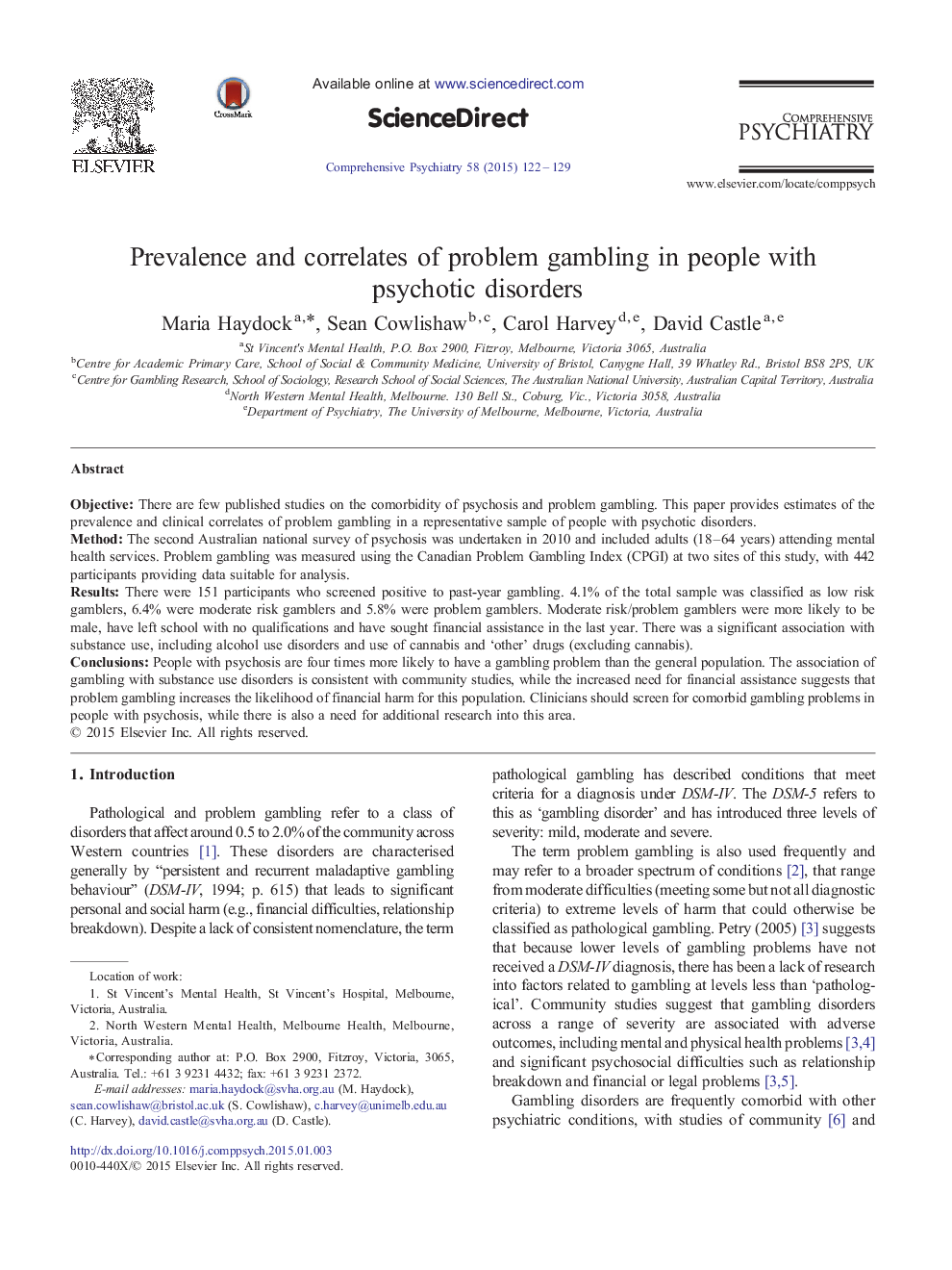| کد مقاله | کد نشریه | سال انتشار | مقاله انگلیسی | نسخه تمام متن |
|---|---|---|---|---|
| 317392 | 538163 | 2015 | 8 صفحه PDF | دانلود رایگان |
ObjectiveThere are few published studies on the comorbidity of psychosis and problem gambling. This paper provides estimates of the prevalence and clinical correlates of problem gambling in a representative sample of people with psychotic disorders.MethodThe second Australian national survey of psychosis was undertaken in 2010 and included adults (18–64 years) attending mental health services. Problem gambling was measured using the Canadian Problem Gambling Index (CPGI) at two sites of this study, with 442 participants providing data suitable for analysis.ResultsThere were 151 participants who screened positive to past-year gambling. 4.1% of the total sample was classified as low risk gamblers, 6.4% were moderate risk gamblers and 5.8% were problem gamblers. Moderate risk/problem gamblers were more likely to be male, have left school with no qualifications and have sought financial assistance in the last year. There was a significant association with substance use, including alcohol use disorders and use of cannabis and ‘other’ drugs (excluding cannabis).ConclusionsPeople with psychosis are four times more likely to have a gambling problem than the general population. The association of gambling with substance use disorders is consistent with community studies, while the increased need for financial assistance suggests that problem gambling increases the likelihood of financial harm for this population. Clinicians should screen for comorbid gambling problems in people with psychosis, while there is also a need for additional research into this area.
Journal: Comprehensive Psychiatry - Volume 58, April 2015, Pages 122–129
